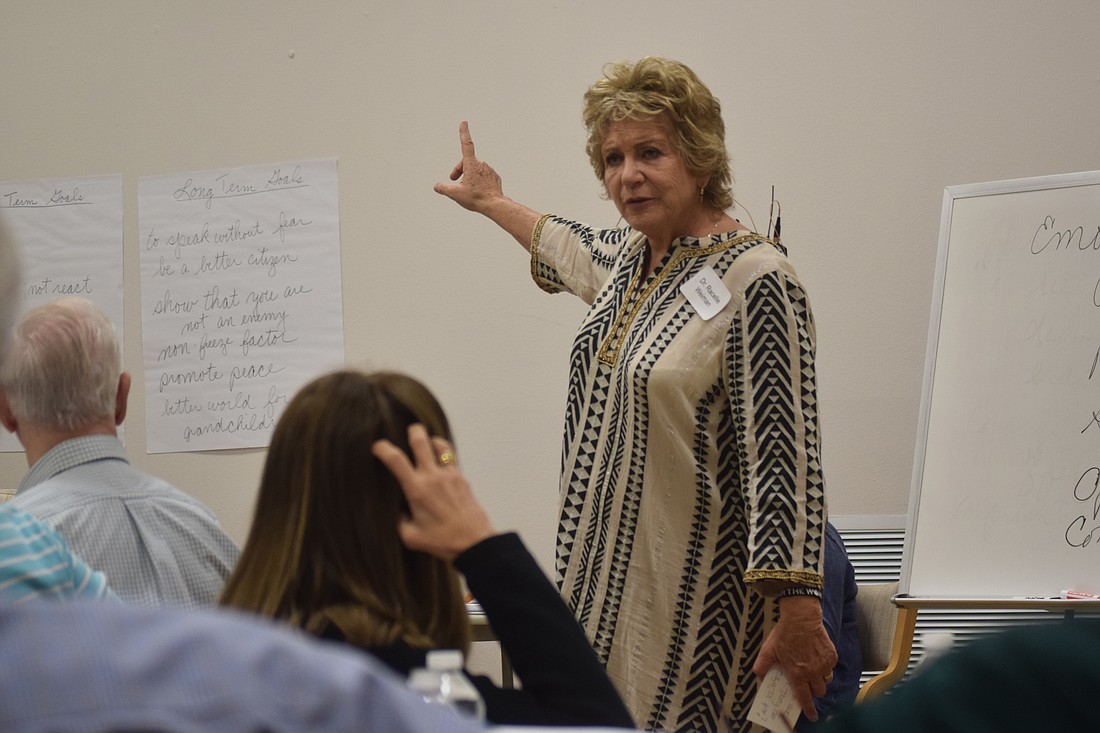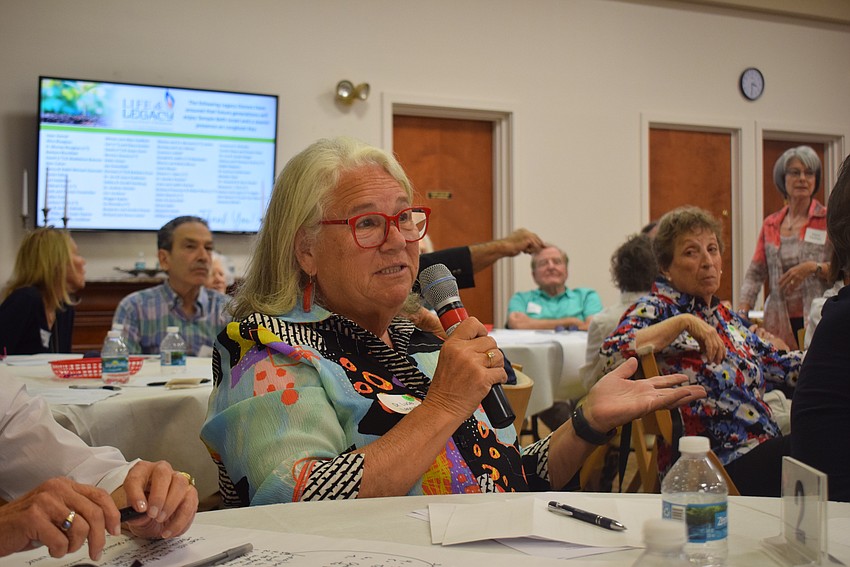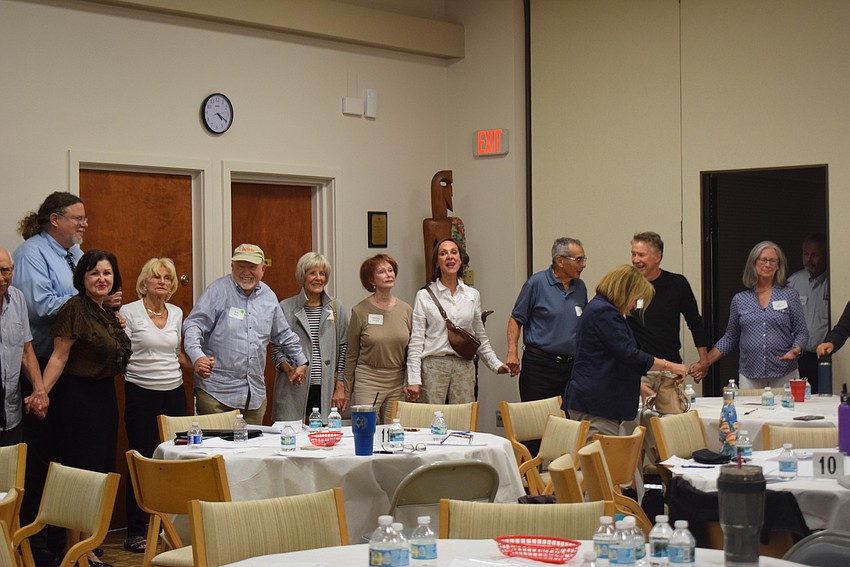- November 22, 2024
-
-
Loading

Loading

Fight, don’t freeze. No matter what your reaction is, it's better to speak up when it is necessary.
That's one of the main takeaways from “Brave Talk: Finding the Words to Confront Intolerance.”
Racelle Weiman led this workshop on Nov. 5 at Temple Beth Israel, covering how to speak up in situations where derogatory speech is used. Karen Gary, Arlene Levy and Elaine Kaufman, members of TBI's Social Action Committee, organized the event.
“There's an absolute thirsty need for this,” said Weiman. “I think people desperately want to do the right thing but they feel unempowered. So my goal is to help them realize that it was within them, it's within reach, that they can speak up.”
Originally from California, Weiman was a professor at Temple University in the Dialogue Institute, which focuses on international, intercultural and interreligious dialogue. She said that her goal there was to bring people from around the world to understand topics such as being a responsible citizen and the meaning of freedom of speech and religion.
Weiman is known in the area for being the facilitator of Miracle on the Key, an interpolitical dialogue group that covers current events and other issues.
Weiman described the participants of this workshop as a group of passionate people who want to stop injustice but didn’t know where to start. She said she was amazed to see the turnout and could see the drive that people have to make a difference.
There were two goals with this talk: to help people master their fear in situations like these and to help them find their voices and use them effectively. Weiman began with defining what “brave talk” is and helping the participants understand where derogatory speech comes from.
“Where is this hatred coming from?” said Weiman in her presentation. “They have studied this since the 1950s. That prejudice comes from three specific sources of behavior. Ignorance, fear and anger are present in all hate. This becomes a thing called dangerous speech. How does it happen? Before you persecute a target group, you name them, and then you avoid them. You separate them out, you alienate them. Because once they're alienated, you don't hold them close and personal. That's when you begin to objectify them. You go from speech, to avoidance, and separation to action, and that's where you have discrimination and violence.”
After giving everyone a clearer picture of this dangerous speech, Weiman turned to the attendees to see how they were feeling and analyze how they handle these situations currently. Everyone was assigned a table where they didn’t know anyone else to get different perspectives. A facilitator sat at the different tables with a list of questions assessing how they actively react when someone uses derogatory speech.

Many of the participants said they were feeling timid and hesitant about talking about a hard topic with people whom they didn’t know. As they discussed more, they felt the opportunity to open up and started to bond with their fellow table members.
Now understanding where they stood in situations like these, Weiman explained the importance of not freezing and not letting derogatory terms slip by. Making sure to say “stop” and anything to indicate that this is not speech that will be tolerated is the key in these situations.
With the first step being “stop,” Weiman gave the group a toolbox of how to lead conversations, making it clear what you heard and stating how it makes you feel uncomfortable.
“People can then be a lot more curious and interested in one another,” said Weiman. “They can be more thoughtful, they can step back and think before they jump into a side. They can be compassionate, do some critical thinking. Those things are very simple. It takes work, critical thinking, being a role model, having a sense of self-worth, and realizing that other people are worthy.”
Before leaving, groups wrote down short- and long-term goals based on the material.
Participants expressed goals that included wanting to understand their own opportunities of dangerous speech and learn how to prevent and speak up when placed in these situations.
The groups were also able to discuss a hypothetical situation to practice the steps Weiman gave them. This led to the discussion of personal stories of being in a scenario when someone used derogatory speech. Participants were able to get second opinions and solutions from their table members.
“This is what we are doing,” said Weiman in her talk. “Understanding that we are brave enough. You can do this. You'll find where and when and how.”
Weiman ended the workshop by playing a cover of the Ben E. King song “Stand By Me” by a children’s choir in Israel. She chose this cover of this song to promote the idea that this topic is something that people should share with their families and their next generation.

Everyone gathered around the room, arms wrapped around each other singing along, and commemorated their hopes to make the world a better place.
Levy said that they are hoping to hold a second workshop with Weiman in the near future.
“We can only empower people to follow their instinct of speaking up,” said Weiman. “I'm optimistic because that's the only way I think I can be. Sitting in the room you could see transformation. The transformation is the idea that the way things are now doesn't have to be this way. That tomorrow can be better tomorrow and can have a different outcome.”